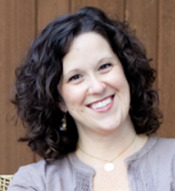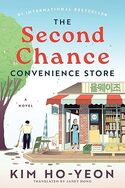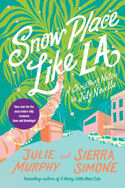 THE LOVE HATERS |
|

New girl. New school. Old evil.
Dark Elite #1 New Girl. New School. Old Evil. From the author of the Chicagoland Vampires novels. A new series about a boarding school filled with something worse than homework. Lily's parents have sent her to a fancy boarding school in Chicago filled with the ultra-rich. If that wasn't bad enough, she's hearing and seeing bizarre things on St. Sophie's creepy campus. Her roommate, Scout, keeps her sane, but keeps disappearing at night. When one day Lily finds Scout running from real-life monsters, she learns the hard way that Scout is involved in a splinter group of rebel teens. They protect Chicago from demons, vamps, and dark magic users. It's too bad Lily doesn't have powers of her own to help. At least, none that she's discovered yet... Excerpt CHAPTER ONE They were gathered around a conference table in a high-rise, eight men and women, no one under the age of sixty-five, all of them wealthy beyond measure. And they were here, in the middle of Manhattan, to decide my fate. I was not quite sixteen and only one month out of my sophomore year of high school. My parents, philosophy professors, had been offered a two-year-long academic sabbatical at a university in Munich, Germany. That’s right—two years out of the country, which only really mattered because they decided I’d be better off staying in the United States. They’d passed along that little nugget one Saturday in June. I’d been preparing to head to my best friend Ashley’s house, when my parents came into my room and sat down on my bed. “Lily,” Mom said, “we need to talk.” I don’t think I’m ruining the surprise by pointing out that nothing good happens when someone starts a speech like that. My first thought was that something horrible had happened to Ashley. Turned out, she was fine; the trauma hit a little closer to home. My parents told me they’d been accepted into the sabbatical program, and that the chance to work in Germany for two years was an amazing opportunity for them. Then they got quiet and exchanged one of those long, meaningful looks that really didn’t bode well for me. They said they didn’t want to drag me to Germany with them, that they’d be busy while they were there, and that they wanted me to stay in an American school to have the best chance of going to a great college here. So they’d decided that while they were away, I’d be staying in the States. I was equal parts bummed and thrilled. Bummed, of course, because they’d be an ocean away while I passed all the big milestones—SAT prep, college visits, prom, completing my vinyl collection of every Smashing Pumpkins track ever released. Thrilled, because I figured I’d get to stay with Ashley and her parents. Unfortunately, I was only right about the first part. My parents had decided it would be best for me to finish high school in Chicago, in a boarding school stuck in the middle of high-rise buildings and concrete—not in Sagamore, my hometown in Upstate New York; not in our tree-lined neighborhood, with my friends and the people and places I knew. I protested with every argument I could think of. Flash forward two weeks and 240 miles to the conference table where I sat in a button-up cardigan and pencil skirt I’d never have worn under normal circumstances, the members of the Board of Trustees of St. Sophia’s School for Girls staring back at me. They interviewed every girl who wanted to walk their hallowed halls—after all, heaven forbid they let in a girl who didn’t meet their standards. But that they traveled to New York to see me seemed a little out of the ordinary. “I hope you’re aware,” said one of them, a silver-haired man with tiny, round glasses, “that St. Sophia’s is a famed academic institution. The school itself has a long and storied history in Chicago, and the Ivy Leagues recruit from its halls.” A woman with a pile of hair atop her head looked at me and said, slowly, as if talking to a child, “You’ll have any secondary institution in this country or beyond at your feet, Lily, if you’re accepted at St. Sophia’s. If you become a St. Sophia’s girl.” Okay, but what if I didn’t want to be a St. Sophia’s girl? What if I wanted to stay home in Sagamore with my friends, not a thousand miles away in some freezing midwestern city, surrounded by private school girls who dressed the same, talked the same, bragged about their money? I didn’t want to be a St. Sophia’s girl. I wanted to be me,Lily Parker, of the dark hair and eyeliner and fabulous fashion sense. The powers that be of St. Sophia’s were apparently less hesitant. Two weeks after the interview, I got the letter in the mail. “Congratulations,” it said. “We are pleased to inform you that the members of the board of trustees have voted favorably regarding your admission to St. Sophia’s School for Girls.” I was less than pleased, but short of running away, which wasn’t my style, I was out of options. So two months later, my parents and I trekked to Albany International. Mom had booked us on the same airline, so we sat in the concourse together, with me between the two of them. Mom wore a shirt and trim trousers, her long, dark hair in a low ponytail. My father wore a button-up shirt and khakis, his auburn hair waving over the glasses on his nose. They were heading to JFK to connect to their international flight; I was heading to O’Hare. We sat silently until they called my plane. Too nervous for tears, I stood and shouldered my messenger bag . My parents stood, as well, my mom reaching out to put a hand on my cheek. “We love you, Lil. You know that? And that this is what’s best?” I most certainly didn’t know this was best. And the weird thing was, I wasn’t sure even she believed it, not as nervous as she sounded when she said it. Looking back, I think they both had doubts about the whole thing. They didn’t actually say that, of course, but their body language told a different story. When they first told me about their plan, my dad kept touching my mom’s knee—not romantically or anything, but like he needed reassurance; like he needed to remind himself that she was there and that things were going to be okay. It made me wonder. I mean, they were headed to Germany for a two-year research sabbatical they’d spent months applying for, but despite what they’d said about the great “opportunity,” they didn’t seem thrilled about going. The whole thing was very, very strange. Anyway, my mom’s throwing out, “It’s for the best,” at the airport wasn’t a new thing. She and dad had both been repeating that phrase over the last few weeks like a mantra. I didn’t know that it was for the best, but I didn’t want a bratty comment to be the last thing I said to them, so I nodded at my mom and faked a smile, and let my dad pull me into a rib-breaking hug. “You can call us anytime,” he said. “Anytime, day or night. Or e-mail. Or text us.” He pressed a kiss to the top of my head. “You’re our light, Lils,” he whispered. “Our light.” I wasn’t sure if I loved him more, or hated him a little, for caring so much and still sending me away. We said our goodbyes, and I traversed the concourse and took my seat on the plane, with a credit card for emergencies in my wallet, a duffel bag bearing my name in the belly of the jet , and my palm pressed to the window as New York fell behind me. Goodbye, “New York State of Mind.” Pete Wentz said it best in his song title: “Chicago Is So Two Years Ago.” # # # Two hours and a tiny bag of peanuts later, I was in the 312 , greeted by a wind that was fierce and much too cold for an afternoon in early September, Windy City or not. My knee-length skirt, part of my new St. Sophia’s uniform , didn’t help much against the chill. I glanced back at the black and white cab that had dropped me off in front of the school’s enclave on East Erie. The driver pulled away from the curb and merged into traffic, leaving me there on the sidewalk, giant duffel bag in my hands, messenger bag across my shoulder, and downtown Chicago around me. What stood before me, I thought, as I gazed up at St. Sophia’s School for Girls, wasn’t exactly welcoming. The board members had told me that St. Sophia’s had been a convent in its former life, but it could have just as easily been the setting for a gothic horror movie. Dismal, gray stone. Lots of tall skinny windows, and one giant round one in the middle. Fanged, grinning gargoyles perched at each corner of the steep roof. I tilted my head as I surveyed the statues. Was it weird that nuns had been guarded by tiny stone monsters? And were they supposed to keep people out . . . or in? Rising over the main building were the symbols of St. Sophia’s—two prickly towers of that same gray stone. Supposedly, some of Chicago’s leading ladies wore silver rings inscribed with an outline of the towers, proof that they’d been St. Sophia’s girls. Three months after my parents’ revelation, I still had no desire to be a St. Sophia’s girl. Besides, if you squinted, the building looked like a pointy-eared monster. I gnawed the inside of my lip and scanned the other few—and equally gothic—buildings that made up the small campus, all but hidden from the rest of Chicago by a stone wall. A royal blue flag that bore the St. Sophia’s crest (complete with tower) rippled in the wind above the arched front door. A Rolls-Royce was parked on the curved driveway below. This wasn’t my kind of place. This wasn’t Sagamore. It was far from my school and my neighborhood, far from my favorite vintage clothing store and favorite coffeehouse. Worse, given the Rolls, I guessed these weren’t my kind of people. Well, they used to not be my kind of people. If my parents could afford to send me here, we apparently had money I hadn’t known about. “This sucks,” I muttered, just in time for the heavy, double doors in the middle of the tower to open. A woman—tall, thin, dressed in a no-nonsense suit and sensible heels—stepped into the doorway. We looked at each other for a moment. Then she moved to the side, holding one of the doors open with her hand. I guessed that was my cue. Adjusting my messenger bag and duffel, I made my way up the sidewalk. “Lily Parker?” she asked, one eyebrow arched questioningly, when I got to the stone stairs that lay before the door. I nodded. She lifted her gaze and surveyed the school grounds, like an eagle scanning for prey. “Come inside.” I walked up the steps and into the building, the wind ruffling my hair as the giant doors were closed behind me. The woman moved through the main building quickly, efficiently and, most noticeably, silently. I didn’t get so much as a “hello,” much less a warm welcome to Chicago. She hadn’t spoken a word since she’d beckoned me to follow her. And follow her I did, through lots of slick, limestone corridors lit by the tiny, flickering bulbs in old-fashioned wall sconces. The floor and walls were made of the same, pale limestone, the ceiling overhead a grid of thick wooden beams, gold symbols painted in the spaces between them. A bee. The flowerlike in the beelike shape of a fleur-de-lis. We turned one corner, then another, until we entered a corridor lined with columns. The ceiling changed, rising above us in a series of pointed arches outlined in curved, wooden beams, the spaces between them painted the same blue as the St. Sophia’s flag. Gold stars dotted the blue. It was impressive—or at least expensive. I followed her to the end of the hallway, which terminated in a wooden door. A name, MARCELINE D. FOLEY, was written in gold letters in the middle of it. When she opened the door and stepped inside the office, I assumed she was Marceline D. Foley. I stepped inside behind her. The room was darkish, a heavy fragrance drifting up from a small oil burner on a side table. A gigantic, circular, stained glass window was on the wall opposite the door, and a massive oak desk sat in front of the window. “Close the door,” she said. I dropped my duffel bag to the floor, then did as she’d directed. When I turned around again, she was seated behind the desk, manicured hands clasped before her, her gaze on me. “I am Marceline Foley, the headmistress of this school,” she said. “You’ve been sent to us for your education, your personal growth, and your development into a young lady. You will become a St. Sophia’s girl. As a junior, you will spend two years at this institution. I expect you to use that time wisely—to study, to learn, to network, and to prepare yourself for academically-challenging studies at a well-respected university. “You will have classes from eight twenty a.m. until three twenty p.m., Monday through Friday. You will have dinner at precisely five o’clock and study hall from seven p.m. until nine p.m., Sunday through Thursday . Lights-out at ten o’clock. You will remain on the school grounds during the week, although you may take your exercise off the grounds during your lunch breaks, assuming you do not leave the grounds alone and that you stay near campus. Curfew begins promptly at nine p.m. on Friday and Saturday nights. Do you have any questions?” I shook my head, which was a fib . I had tons of questions, actually, but not the sort I thought she’d appreciate, especially since her PR skills left a lot to be desired. She made St. Sophia’s sound less like boarding school and more like prison. Then again, the PR was lost on me, anyway. It’s not like I was here by choice. “Good.” Foley pulled open a tiny drawer on the right-hand side of her desk. Out of it, she lifted an antique, gold skeleton key—the skinny kind with prongs at the end—which was strung from a royal blue ribbon. “Your room key,” she said, and extended her hand. I lifted the ribbon from her palm, wrapping my fingers around the slender bar of metal. “Your books are already in your room. You’ve been assigned a laptop, which is in your room, as well.” She frowned, then glanced up at me. “This is likely not how you imagined your junior and senior years of high school would be, Ms. Parker. But you will find that you have been bestowed an incredible gift. This is one of the finest high schools in the nation. Being an alumna of St. Sophia’s will open doors for you educationally and socially. Your membership in this institution will connect you to a network of women whose influence is international in scope.” I nodded, mostly about that first part. Of course I’d imagined my junior and senior years differently. I’d imagined being at home, with my friends, with my parents. But she hadn’t actually asked me how I felt about being shipped off to Chicago, so I didn’t elaborate. “I’ll show you to your room,” she said, rising from her chair and moving toward the door. I picked up my bag again and followed her. St. Sophia’s looked pretty much the same on the walk to my room as it had on the way to Foley’s office—one stone corridor after another. The building was immaculately clean, but kind of empty. Sterile. It was also quieter than I would have expected a high school to be, certainly quieter than the high school I’d left behind. But for the click of Foley’s heels on the shining stone floors, the place was graveyard silent. And there was no sign of the usual high school stuff. No trophy cases, no class photos, no lockers, no pep rally posters. Most importantly, still no sign of students. There were supposed to be two hundred of us. So far, it looked like I was the only St. Sophia’s girl in residence. The corridor suddenly opened into a giant, circular space with a domed ceiling, a labyrinth set into the tile on the floor beneath it. This was a serious place. A place for contemplation. A place where nuns once walked quietly, gravely, through the hallways. And then she pushed open another set of double doors. The hallway opened into a long room lit by enormous metal chandeliers and the blazing color of dozens of stained glass windows. The walls that weren’t covered by windows were lined with books, and the floor was filled by rows and rows of tables. At the tables sat teenagers. Lots and lots of teenagers, all in stuff that made up the St. Sophia’s uniform: navy plaid skirt and some kind of top in the same navy; sweater; hooded sweatshirt; sweater-vest. They looked like an all-girl army of plaid. Books and notebooks were spread on the tables before them, laptop computers open and buzzing. Classes didn’t start until tomorrow, and these girls were already studying. The trustees were right—these people were serious about their studies. “Your classmates,” Foley quietly said. She walked through the aisle that split the room into two halves, and I followed behind her, my shoulder beginning to ache under the weight of the duffel bag. Girls watched as I walked past them, heads lifting from books (and notebooks and laptops) to check me out as I passed. I caught the eyes of two of them. The first was a blonde with wavy hair that cascaded around her shoulders, a black patent leather headband tucked behind her ears. She arched a brow at me as I passed, and two other brunettes at the table leaned toward her to whisper. To gossip. I made a pretty quick prediction that she was the leader of that pack. The second girl, who sat with three other plaid cadets a few tables down, was definitely not a member of the blonde’s pack. Her hair was also blond, but for the darker ends of her short bob. She wore black nail polish and a small, silver ring on one side of her nose . Given what I’d seen so far, I was surprised Foley let her get away with that, but I liked it. She lifted her head as I walked by, her green eyes on my browns as I passed. She smiled. I smiled back. “This way,” Foley ordered. I hustled to follow. We walked down the aisle to the other end of the room, then into another corridor. A few more turns and a narrow flight of limestone stairs later, Foley stopped beside a wooden door. She bobbed her head at the key around my neck. “Your suite,” she said. “Your bedroom is the first on the right. You have three suitemates, and you’ll share the common room. Classes begin promptly at eight-twenty tomorrow morning. Your schedule is with your books. I understand you have some interest in the arts?” “I like to draw,” I said. “Sometimes paint.” “Yes, the board forwarded some of the slides of your work. It lends itself to the fantastic—imaginary worlds and unrealistic creatures—but you seem to have some skill. We’ve placed you in our arts track. You’ll start studio classes within the next few weeks, once our instructor has settled in. It is expected that you will devote as much time to your craft as you do to your studies.” Apparently having concluded her own instructions, she gave me an up-and-down appraisal. “Any questions?” She’d done it again. She said, “Any questions?” but it sounded a lot more like “I don’t have time for nonsense right now.” “No, thank you,” I said, and Foley bobbed her head. “Very good.” With that, she turned on her heel and walked away, her footsteps echoing through the hallway. I waited until she was gone, then slipped the key into the lock and turned the knob. The door opened into a small circular space—the common room. There were a couch and coffee table in front of a small fireplace, a cello propped against the opposite wall, and four doors leading, I assumed, to the bedrooms. I walked to the door on the far right and slipped the skeleton key from my neck, then into the lock. When the tumblers clicked, I pushed open the door and flipped on the light. It was small—a tiny, but tidy space with one small window and a twin-sized bed. The bed was covered by a royal blue bedspread embroidered with an imprint of the St. Sophia’s tower. Across from the bed was a wooden bureau, atop which sat a two-foot-high stack of books, a pile of papers, a silver laptop, and an alarm clock. A narrow wooden door led to a closet. I closed the door to the suite behind me, then dropped my bag onto the bed. The room had a few pieces of furniture in it and the school supplies, but otherwise, it was empty. But for the few things I’d been able to fit into the duffel, nothing here would remind me of home. My heart sank at the thought. My parents had actually sent me away to boarding school. They chose Munich and researching some musty philosopher over art competitions and honors society dinners, the kind of stuff they usually loved to brag about. I sat down next to my duffle, pulled the cell phone from the front pocket of my gray and yellow messenger bag, flipped it open, and checked the time. It was nearly five o’clock in Chicago and would have been midnight in Munich, although they were probably halfway over the Atlantic right now. I wanted to call them, to hear their voices, but since that wasn’t an option, I pulled up my mom’s cell number and clicked out a text message: “@ SCHOOL IN ROOM.” It wasn’t much, but they’d know I’d arrived safely and, I assumed, would call when they could. When I flipped the phone closed again, I stared at it for a minute, tears pricking at my eyes. I tried to keep them from spilling over, to keep from crying in the middle of my first hour at St. Sophia’s, the first hour into my new life. They spilled over anyway. I didn’t want to be here. Not at this school, not in Chicago. If I didn’t think they’d just ship me right back again, I’d have used the credit card my mom gave me for emergencies, charged a ticket, and hopped a plane back to New York. “This sucks,” I said, swiping carefully at my overflowing tears, trying to avoid smearing the black eyeliner around my eyes. A knock sounded at the door, which opened. I glanced up. “Are you planning your escape?” asked the girl with the nose ring and black nail polish who stood in my doorway. Dark Elite

Our Past Week of Fresh Picks
There are no rules this cruel summer…“I think we should see other people…” That one sentence unravels Samantha Parker&rsquo Read More »
THE DEATH MASK From #1 New York Times bestselling author Iris Johansen comes a new thriller starring Eve Duncan as she races against time to protect her beloved Read More »
Set in the art world of 1970s London, The English Masterpiece is a fast-paced read to the end, full of glamour and Read More »
Detective Arkady Renko—“one of the most compelling figures in modern fiction” (USA TODAY)—returns in this tense thriller set amid Read More »
Eat Post Like is a heartwarming debut novel of self-discovery, resilience, and the transformative power of food.Cassie Brooks has her life all Read More »
In this million-copy international bestseller from Korea, the owner of a corner store takes in an unhoused man who does a good deed, a Read More »
From NYT bestselling author Rachel Gillig comes the next big romantasy sensation, a gothic, mist-cloaked tale of a young prophetess forced Read More »
It’s twice as hot in this extra steamy Christmas in July two-in-one cowritten by #1 New York Times bestselling Read More » |
|
| |||
|
||||





















 © 2003-2025
© 2003-2025